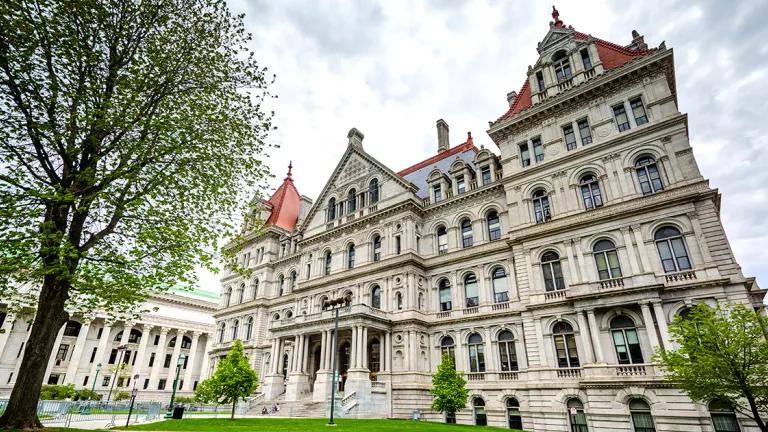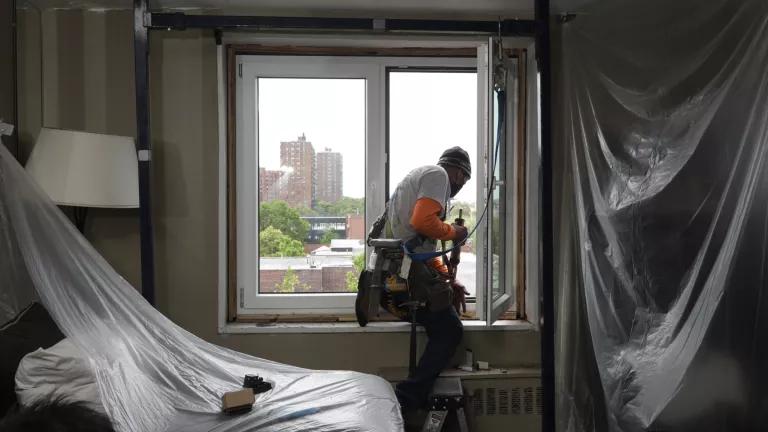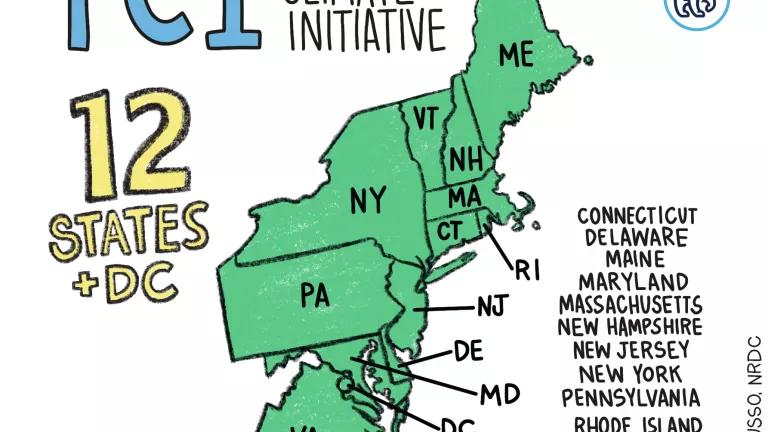Four East Coast Winners Announced in City Climate Challenge
Four East Coast cities are scaling up their efforts to fight climate change.
Bloomberg Philanthropies and the Natural Resources Defense Council today announced that Pittsburgh, Philadelphia, Boston, and our nation’s capital, Washington, D.C., are among the 20 winning cities in the Bloomberg American Cities Climate Challenge. These cities were chosen for their bold, ambitious plans for combating their biggest environmental challenges—and for showcasing a steadfast commitment to solving them. The latest round of winners comes on the heels of an announcement made last week, which unveiled four West Coast Challenge recipients.
The Bloomberg American Cities Climate Challenge is a $70 million dollar program that will accelerate our efforts to tackle climate change in 20 cities across the U.S. NRDC is proud to partner with Bloomberg Philanthropies, Delivery Associates, as well as several other groups, to support the winners. The challenge focuses on decreasing greenhouse gas emissions from buildings and transportation—the two primary sources of carbon pollution in most cities.
As the federal government abdicates its responsibility to tackle the climate crisis, cities are picking up the mantle of leadership. They have a vested interest in doing so: 90% of urban areas are located in or near a coastal region, and almost certainly, will be the first to face rising sea levels and feel the impacts of increasingly powerful storms. New warnings by a U.N. scientific panel that we could see the worst impacts much sooner than expected if we don’t act swiftly and boldly add an even greater sense of urgency.
Fortunately, cities are also uniquely positioned to tackle this challenge. They account for 70% of global greenhouse gas emissions and two-thirds of energy use. That means decreasing their carbon footprint and strengthening their sustainability efforts can make a big impact.
The four eastern cities announced today will be doing exactly that through specific commitments to improve and upgrade their building and transportation infrastructure—commitments that will keep them on track to meet their Paris climate goals and meet other milestones on economic growth, equity, and improved quality of life for their residents.
In Pittsburgh, the challenge will help expand energy efficiency for large existing buildings, reducing energy waste community-wide. The city will also support and develop renewable energy, including building local solar projects.
On transportation, the city will begin to electrify municipal fleets, pilot clean heavy-duty vehicles, and work with the Port Authority to accelerate the transition to electric buses. It will also focus on improving and creating new bicycle routes that will ensure two-thirds of Pittsburgh households are within a half-mile of a designated bike facility.
Philadelphia will improve residential energy efficiency for home-buyers and tenants through utility incentives, as well as increase energy efficiency in large buildings both in the public and private sector.
The city aims to reduce carbon emissions from cars by increasing biking, walking and public transit trips 5% by 2025 or sooner—through infrastructure improvements and financial incentives that promote low-carbon modes of transportation. It will also accelerate transition of 6,000 municipal vehicles to electric and will work with the transit agency (SEPTA) to electrify its fleet.
Boston, for its part, will launch a parking “cash-out” commuter incentive program that offers financial rewards to employees who do not drive to work. Commuters will also benefit from 10 new miles of bike lanes, 10 neighborhood slow streets, and 85 additional bike share stations created within the next two years.
The city will require 10% of all new parking lots and garages to include electric vehicle (EV) charging infrastructure by 2020 and an additional 25% to be “EV-ready,” meaning that they have the necessary infrastructure to support EV chargers when they are ready to be installed.
On top of this, the city will connect large building owners and operators to efficiency and renewables opportunities through targeted audits. The city will also develop a one-stop shop of capacity and resources that will help residents reduce their carbon footprints and lower their energy bills, particularly those in low-income and environmental justice communities.
In Washington D.C., the challenge will help improve energy performance in large buildings through technical assistance and incentives. Additionally, D.C. will work toward replacing oil with electricity (which is cleaner and has a smaller carbon footprint) for heating, cooling and hot water needs in high-priority neighborhoods.
On transportation, D.C. will deliver eight miles of new protected bike lanes, five miles of multi-use trails and three upgraded river crossings to better serve both cyclists and pedestrians. They will also implement two new dedicated bus lanes by 2020 and develop a Bus Priority Program with the transit authority (WMATA) to deliver improved bus speed and commuter experience.
These cities are demonstrating forward-thinking work that can help our country tackle climate change by starting in their own backyard. United in a common goal of leaving our children a better future—and with more cities on the way—this is only the beginning.



